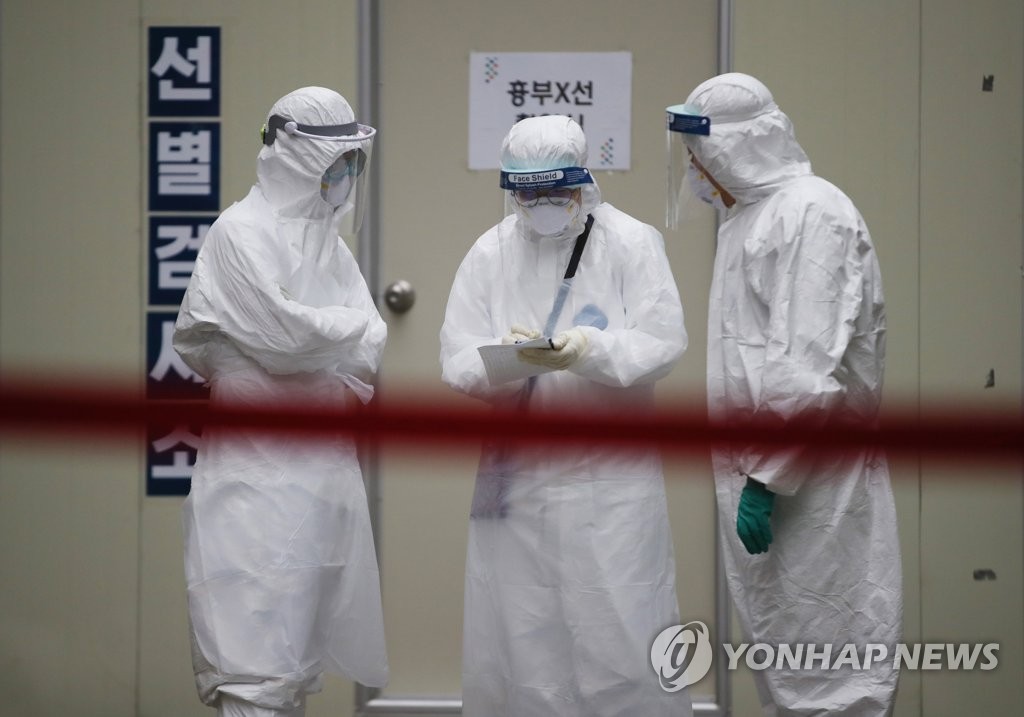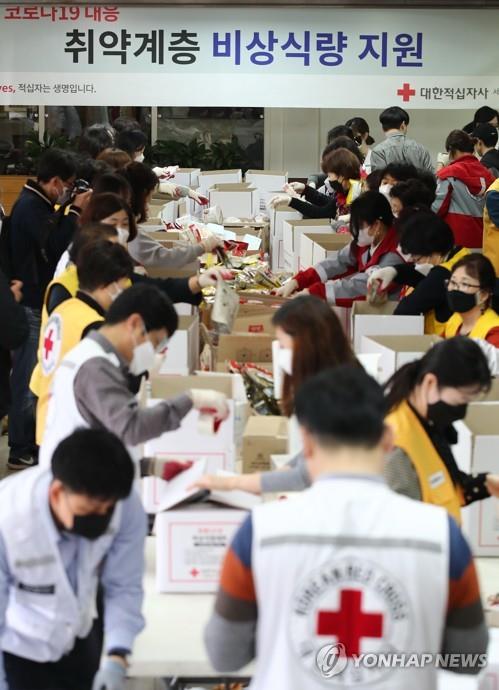- California Assembly OKs highest minimum wage in nation
- S. Korea unveils first graphic cigarette warnings
- US joins with South Korea, Japan in bid to deter North Korea
- LPGA golfer Chun In-gee finally back in action
- S. Korea won’t be top seed in final World Cup qualification round
- US men’s soccer misses 2nd straight Olympics
- US back on track in qualifying with 4-0 win over Guatemala
- High-intensity workout injuries spawn cottage industry
- CDC expands range of Zika mosquitoes into parts of Northeast
- Who knew? ‘The Walking Dead’ is helping families connect
S. Korea again urges social distancing, strict self-isolation amid steady rise in virus cases
South Korea once again urged people to stay home, avoid mass gatherings over the weekend and comply with self-isolation rules if they returned from abroad, as COVID-19 clusters continued to emerge amid a rise in imported coronavirus cases.
The 91 new cases, which were detected Thursday and down from 104 new cases Wednesday, marked the 16th consecutive day there were around 100 or fewer additional cases, according to the Korea Centers for Disease Control and Prevention (KCDC).
There were 9,332 confirmed cases in total, and the death toll rose by eight to 139. The KCDC said 56 virus patients are in critical condition. The number of imported cases climbed by 13 to reach 144.
The mortality rate stood at 1.49 percent as of Thursday, according to the KCDC. For those aged 80 and above, the fatality rate was 15.19 percent.



Medical workers in protective gear make preparations in front of a testing facility at a hospital in the virus-hit city of Daegu on March 26, 2020. (Yonhap)
South Korea began implementing stricter rules on social distancing Sunday to slow the coronavirus pandemic that emerged in China late last year.
Citizens are strongly urged to stay at home, except for essential needs or jobs, with the government restricting religious gatherings, indoor sports activities and visits to nightclubs and other entertainment venues.
South Korea has enforced a two-week quarantine period and virus tests for all long-term arrivals from Europe, regardless of symptoms, in an effort to contain imported virus cases. Starting Friday, passengers from the U.S. for long-term stay are required to self-isolate at home for two weeks.
Yoon Tae-ho, a senior health ministry official, said about 40 people have violated rules on self-isolation so far, calling for people coming from abroad to strictly comply with the rules.
South Korea has vowed a “no-tolerance” policy in dealing with violators. Those who are Korean nationals will face lawsuits and foreigners will be expelled.
Travelers from Europe and the U.S. are advised to use their own cars when returning home. If they do not own cars, the government will arrange for them to be transported via buses and trains, Yoon said.
Starting Monday, any passenger with a body temperature higher than 37.5 C will be banned from boarding flights to South Korea, officials said.
KCDC Director General Jeong Eun-kyeong said South Korea is considering requiring people coming from Southeast Asian nations to self-isolate at home for two weeks.
Virus cases in Thailand and the Philippines stood at 1,045 and 707, respectively, according to data compiled by Johns Hopkins University.
Daegu and North Gyeongsang Province, the nation’s two worst-affected regions, reported 34 and nine new cases, respectively.
Seoul, Incheon and Gyeonggi Province, which surrounds the capital city, saw the daily number of new infections rise by 26 to 830 Thursday.
So far, 4,528 patients have recovered, and 4,665 are receiving treatment. South Korea has tested 376,961 people since Jan. 3. The virus was first detected in the country on Jan. 20.











